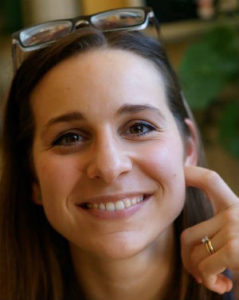Commentary on Parshat Naso (Numbers 4:21 – 7:89)
Here in DC, the last couple of months have been pretty rough. In March, DC City Council member Trayon White claimed that the Rothschilds control the weather and the government, and then ducked out early from a tour of the U.S. Holocaust Memorial Museum that had been set up to educate him in response to his comments. A few weeks later, a mayoral appointee organized a rally at which he held the loudspeaker while a speaker called Jewish City Council member Elissa Silverman a “fake Jew” and said the Jewish people were “termites.” The men who made these comments aren’t skinheads or neo-Nazis—they’re people of color from under-resourced parts of DC. Their words are hate speech, and they sting.
In the aftermath, I’ve been hearing two streams of remarks. One goes like this: “Those anti-Semitic comments are unacceptable, and we need to be louder and less apologetic in speaking out against them.” Another goes like this: “Those comments were spurred by ignorance, and so it’s on us to do a better job at serving communities with under-resourced educational systems so that the kids who live there won’t grow up to be ignorantly anti-Semitic.” While each statement seems to me to be correct, these two camps sometimes seem to oppose each other. It’s as if fighting anti-Semitism means turning away from the context in which those comments were made. It’s as if compassion toward under-resourced communities requires remaining silent about unacceptable hate speech.
This week’s Torah portion, Naso, contains Birkat HaKohanim — the Priestly Blessing — which reinforces my feeling that that dichotomy is a false one. It reads:
May God bless you and keep you.
May God shine God’s light on you and be gracious to you.
May God turn God’s face towards you and bring you peace. (Numbers 6:24-26)
The part of this blessing that’s always jumped out to me first is the idea that God can turn God’s face in one direction or another — as though God isn’t always everywhere, turned in every direction all at once. I’m a panentheist: I believe God is completely transcendent and therefore inclusive of all of existence, so it’s counterintuitive to me that God could be facing one direction and not another. Unless, of course, we’re talking about the image of God — tzelem Elohim — us. People. We turn our attention in different directions all the time! Maybe this is a blessing about what we can do for each other and ourselves, at least in part. If we read it that way, here’s how the blessing could go…
May God bless us and keep us vigilant, looking out for ourselves and our people.
May God inspire us to light up, proudly highlighting our own unique beauty, and allow us to be gracious, even when folks make it hard.
May God inspire us to turn towards others — across neighborhoods, across parties, across religions — and really try to see, compassionately, what’s going on there, so we may bring peace to our country, our families, and our own psyches.

That’s a blessing that honors the need to speak out against hate speech targeting our people. It recognizes the need to protect and value our people, and to speak up for ourselves with pride for who we are and honesty about our pain and anger.
That’s also a blessing that calls on us to turn towards one another with graciousness and figure out where the one who hurt us is coming from. If dialogue and allyship would help, this blessing is directing us to do that turning and show up where we don’t usually go.
Where cruel and baseless words make us want to turn away in fear or cry out in indignation, this ancient blessing makes me want to turn towards that discomfort in courage, speak out with clarity, and then listen. Like the ancient kohanim (priests), may we be leaders. Even when it stings, may we be blessed with the power to make peace.
Rabbi Hannah Spiro serves the Hill Havurah in Washington, DC, and is a DC-area native. She is a 2017 Reconstructionist Rabbinical College graduate, as well as a singer/songwriter.

